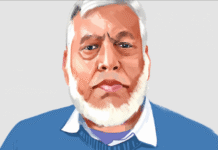In the fallout of the $100-million Bangladesh Bank heist, the Philippine financial industry became front and center in the media, raising questions on how such a huge amount of dirty money easily got into the country.
The money was coursed through Philippines’ banking system, deposited to a Filipino-Chinese businessman’s bank account, and transferred to 3 large casinos – these are just some important details in a story that is developing into the biggest documented case of money laundering in Philippine history.
With less than two months left before the current administration ends, this could even stain President Benigno Aquino III’s legacy of minimizing corruption in the country, with the Philippines in danger of returning to the “gray list” of the Financial Action Task Force (FATF).
What’s the Bangladesh Bank story?
The laundered money came from the account of the central bank of Bangladesh, a lower middle income nation and one of the world’s most densely populated countries.
In early February, authorities of Bangladesh Bank were informed that about $100 million was illegally taken out of its account with the Federal Reserve Bank of New York using an interbank messaging system known as SWIFT.
The laundered money was moved via transfer requests, with about $81 million ending up in bank accounts in the Philippines. The other $20 million went to an account in Sri Lanka.
Another $850 million was supposed to be wired to personal bank accounts in the Philippines, but was blocked by authorities just in time, according to a Philippine Daily Inquirer report.
The $81 million was initially wired to the Philippines, going into 4 Rizal Commercial Banking Corporation (RCBC) foreign currency accounts in its Jupiter, Makati branch.
The stolen money was then consolidated into two foreign currency accounts linked to Filipino-Chinese businessman William Go, and then moved to Midas Hotel and Casino, City of Dreams, and Solaire Resort and Casino.
The Bureau of Immigration on Friday, March 12, barred Maia Santos-Deguito – manager of RCBC Jupiter – from leaving the Philippines.
Meanwhile, Go, who used to own S&R Membership Shopping, has denied in an affidavit to the National Bureau of Investigation that he opened the RCBC account. His supposed foreign currency accounts – one in his name and another in the name of his business Centurytex Trading – were allegedly used to hold the bulk of the laundered money.
Go’s lawyer, Ramon Esguerra, told reporters on Friday, March 12, that Deguito met up with Go, offering up to P20 million ($430,000) to cover up the transactions by closing the accounts. (READ: Ex-S&R owner to sue RCBC manager over heist)
The Philippine Senate on Tuesday, March 15, is set to hold a hearing on the money-laundering case.
Key resource people include members of the Anti-Money Laundering Council (AMLC) led by its chair, Bangko Sentral ng Pilipinas Governor Chair Amando Tetangco Jr; RCBC president and CEO Lorenzo Tan; Philippine Amusement and Gaming Corporation chair and CEO Cristino Naguiat Jr; and officials of Solaire Resort and Casino, Midas Hotel and Casino, and City of Dreams.
Ease of fund transfer to PH
The Philippines’ involvement in the $100-million Bangladesh Bank heist, which has risked its return to the FATF gray list, showed the urgency of putting more teeth into the Anti-Money Laundering Act (AMLA), said Securities and Exchange Commission chairperson Teresita Herbosa, who co-chairs AMLC.
The law, which was first introduced in 2001, left casinos out of the list of entities required to report suspicious transactions to the AMLC. There were efforts in the Senate to include this provision in the amended AMLA in 2013, but this was blocked by some lawmakers, and PAGCOR. (READ: Casinos exempt from tougher anti-money laundering law)
At the time, the country was at risk of being blacklisted by FATF without an amended AMLA by the deadline set by the body.
Herbosa said not requiring casinos to report suspicious transactions might have allowed the easy entry of dirty money into local casinos – just like what supposedly happened in the case of the Bangladesh Bank funds.
“It’s a global effort to eradicate money laundering. We have to catch up with people doing that activity and while we are doing that we need to strengthen the laws of each country to comfort to best practices,” Herbosa said.
For Senator Sergio Osmeña III, AMLA author, the casinos were excluded from the scope of the law due to strong lobbying of companies.
Osmeña said it is now up to the next Congress to pass the needed amendment. He added that Aquino’s successor “should strongly reconsider the bank secrecy law.”
“We have the strictest bank secrecy law in the whole world. Congress doesn’t want to loosen it up. Why? You and I have our own guesses. It’s very easy for criminals to hide their money in the Philippines. As a matter of fact, we are one of the most active money laundering centers in the world,” Osmeña told ANC’s Business Nightly.
Another loophole is that AMLC can only look into an account once the concerned party is informed, also known as a de parte inquiry, Senator Teofisto Guingona IIIhad earlier raised.
“As a result, once informed, many have resorted to emptying out their bank accounts before the government can inquire into them. Logic and necessity demand that we allow for an ex parte inquiry,” Guingona earlier said in a blog post.
According to the Guingona, AMLC should be allowed to look into accounts of people – even without their presence – when there is probable case of money laundering or any unlawful activity.
OFWs biggest loser if PH blacklisted
If the Philippines returns to the FATF gray list, lawmakers have said that overseas Filipino workers and their families will be the hardest hit. This is because FATF member-countries will implement the enhanced verification of money going in and out of the Philippines if this happens.
When the AMLA amendments were still being deliberated in Congress in 2012, Guingona told Rappler: “They’ll make it harder because the presumption now is you have to prove that your money is legal. You’re blacklisted so prove your money is really legitimate and not sourced from an illegal source. It’s the reverse,” (READ:Senate caucus on AMLA; blacklisting feared)
For Osmeña, who chairs the Senate committee on banks, financial institutions and currencies, the Philippines will be at the losing end because local banks won’t be able to transact with their counterparts in FATF countries.
Aside from OFWs, Guingona had said a blacklist will also affect business because companies will have difficulty sending money to the Philippines.
FATF has over 30 member-countries representing major financial centers like the US, UK, Germany, France, China, Japan, and South Korea.
This latest money laundering scandal draws attention to an outdated law, making it easy for criminals to hide dirty money in the Philippines and hard for the authorities to investigate such cases.
With the Senate hearing set on Tuesday, March 15, authorities will hopefully discuss how they can plug loopholes in the outdated AMLA.
Source: Dhaka Tribune











